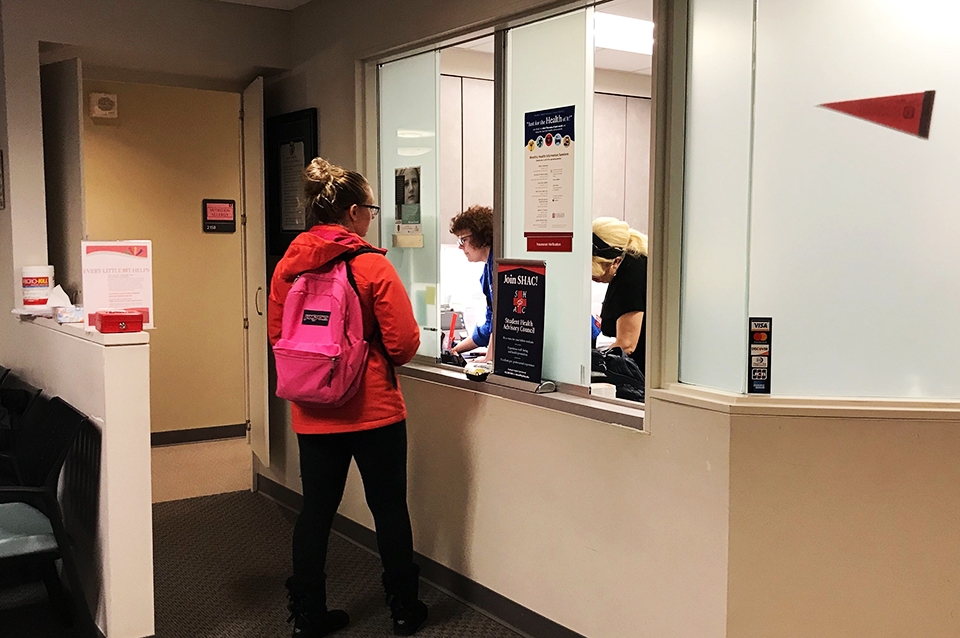
Students check into Duquesne's Health Services Center in the Student Union.

Students check into Duquesne’s Health Services Center in the Student Union.
Alex Wolfe | Staff Writer
02/01/18
In 2018, you would think the human race could have conquered one of the most common diseases in the history of our planet. Yet, Time Magazine reported that since researchers began to track this year’s flu season, 74 people under the age of 65 have died as a result of the influenza virus, 32 of whom died in 2018.
However, the flu is not a death sentence. The severity one experiences are largely determined by the individual’s response to those symptoms. Many of these deaths were, in fact, the result of a misdiagnoses by the victim or a guardian.
Pittsburgh is undoubtedly at risk for multiple variations of the influenza virus. According to Duquesne University Health Services Director Dessa Mrvos, the Bluff has already been hit by a few.
In an interview, Director Mrvos explained that this particular season has been surprisingly brutal for students. However, one of the biggest problems for students is not the actual virus, but rather what Mrvos referred to as Influenza-like Infections (ILIs).
“ILIs resemble the common cold and the influenza virus. Due to the fact that this year’s flu strain has spawned a host of ILIs, many students fall into the trap of self-diagnosing,” Mrvos explained.
Mrvos warns that this behavior “leads students to assume that their symptoms are the symptoms of some version of the common cold. By self-diagnosing, students put themselves and those around them at risk, especially if their affliction turns out to be a true strain of influenza.”
Mrvos stated that, “While most students aren’t at risk of death, they are certainly at risk to hospitalizing symptoms or face other severe health risks that could have long-term effects, particularly given the shortage of hospital space this winter.”
Duquesne Health Services and Duquesne Pharmacy Services have been distributing the influenza vaccine to students since October.
Mrvos said, “Duquesne Health Services has been well-prepared for this flu season,” and was quick to mention that, “the prevalence and pertinence of this influenza season forced us to ensure that we had the resources necessary to handle what we expected to be a flood of students experiencing symptoms.”
Mrvos’ assumptions about students seemed to be correct. Of Duquesne students polled, 32 out of 100 said that they had felt flu-like symptoms. Additionally, 48 of the 68 students that said they didn’t experience flu like symptoms said they had received their flu shot this year.
What has made this flu season particularly deadly is the fact that this particular strain has traveled so well and so quickly. The Center for Disease Control (CDC) has reported the virus has appeared in every U.S. state, an incredibly high rate of spread by CDC standards.
Mrvos said that “the best medicine is simply to allow the professionals to do their job.” Rather than self-diagnose or self-medicate, Mrvos wants students to know that they should see health services if they feel any doubt in their own health.



